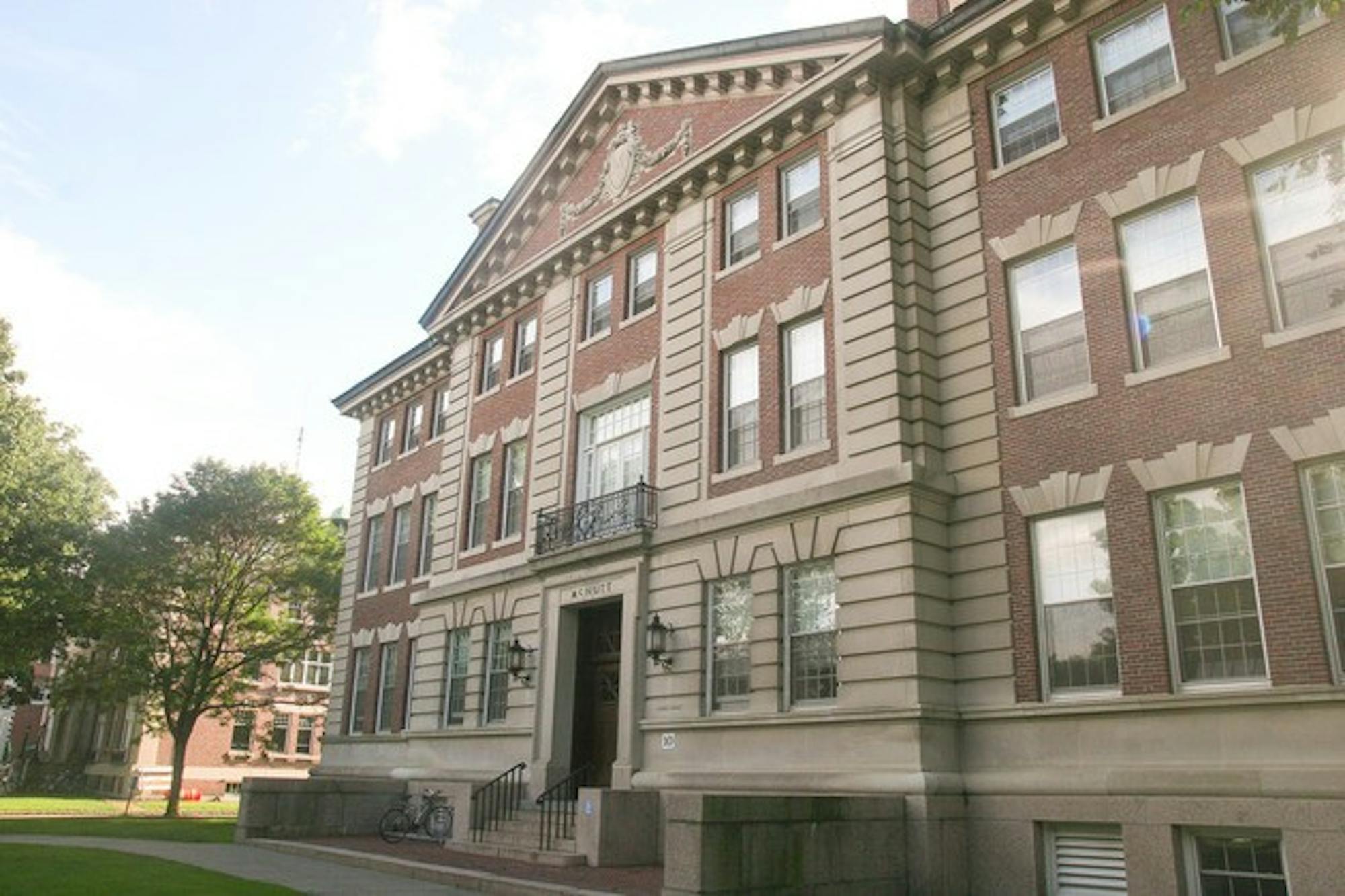Moreno, who does not receive full financial aid, joins others at the College who take out loans to help cover extra costs incurred when living off-campus or studying abroad.
In building a financial aid package for students, the Financial Aid Office factors in the costs of tuition, room, board and other fees to cover travel, books and miscellaneous expenses, director Virginia Hazen said.
Students receiving full or nearly full financial aid and wishing to live off-campus may withdraw funds typically allocated towards on-campus housing to pay for rent off-campus.
Dravid Joseph '14 said that while he receives sufficient financial aid to cover tuition, the high local costs can be challenging.
"The College factors in things like tuition and room and board, but not the cost of living in Hanover, like school supplies and textbooks that are more expensive," Joseph said.
Studying abroad can also be challenging, as the cost of supplementary travel plans and other incidental expenses quickly add up.
Off-campus programs director John Tansey acknowledged that differences in student experience exist on off-campus programs, especially when students are not able to travel as much as their peers.
"When I speak with the students I really emphasize that the program itself is robust and there is a lot to be gained by exploring the host city of the host country," Tansey said.
A student's financial aid package is transferred to fund off-campus programs and is adjusted to meet increases in cost, he said.
Several weeks before the beginning of each term, the Off-Campus Programs Office estimates the program's total cost and provides this information to the Financial Aid Office.
The estimated costs also take into consideration evaluations by students who participated in the program during past terms."
The College does not provide financial aid for students to travel while studying abroad, Hazen said.
Jennifer McGrew '13, who received financial aid, said the College covered the tuition and other participation costs of a language study abroad program in Brazil.
She also received a Dartmouth institutional loan to cover her daily expenses while abroad.
Initially, McGrew was told that she would need to purchase a plane ticket and receive a reimbursement after financial aid funds were applied to her account. When she expressed her inability to pay for the ticket, the Financial Aid Office provided her with the money, drawn from a fund intended for such purposes.
Despite having to pay off the loan with interest, McGrew said the experience of studying abroad was rewarding.
"Paying off loans is definitely scary, but it's worth it," she said.
When Tom Owen '15 participated in a foreign study program in Paris last spring, he found that financial differences among students were more apparent abroad than at the College. In Paris, living and spending money was far more tangible, unlike the Class of 1953 Commons, where students swipe "imaginary money,"
"When you're outside of Dartmouth, you can become a little bit more aware about the differences in financial situations with students," Owen said. "When I am on campus, I am not spending money on a daily basis and money does not in the same way impede my day-to-day activities."
Students on the program sometimes changed or discarded their extracurricular plans to ensure that everyone was financially able to participate. While admission to most museums was free with their French student IDs, the group had to make conscious decisions about finding reasonable options for dining and travel.
"I was happy with the fact that I felt our group tried to be inclusive rather than setting up situations that would unnecessarily be prohibitive," Owen said.
For Stephanie Abott-Grobicki '15, an FSP in Rome proved less expensive than a term at Dartmouth. After financial aid covered the tuition and costs of attendance, the family contribution component of her financial aid proved to be lower than a regular term on campus. Abott-Grobicki was able to use the 3,000, or around $4,000, surplus for personal expenses and travel.
The Off-Campus Programs office conducted a study to determine whether students on financial aid study abroad to a lesser extent than their peers, Tansey said. The results showed a slightly higher rate of participation for students who receive financial aid.
Tansey said this result reflects the College's ability to meet students' financial needs regardless of their plan of study, thus allowing students of various backgrounds the same opportunities.
Owen is a former member of The Dartmouth staff.




